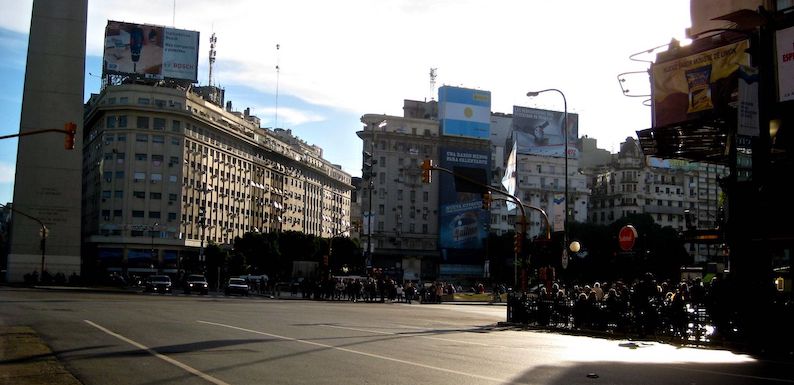Being polite in Spanish isn’t too challenging. Let’s learn how.
Imagine you are on the Metro and Mexico city. You need to get by all the people, so that you can get off. How do you politely
What’s the best way to say, “Excuse me, I need to get by”?
Or what if you want to get somebody’s attention or apologize for bumping into them?
A lot of Spanish learners I talk to are uncertain about how to be polite in different situations in Spanish.
So what are some key phrases that you can use confidently? Phrases where you will know that you’re being polite (even if you’re brand new to Spanish). Below, I cover a handful of common courtesy phrases that will help you if you’re learning Spanish.
One thing to note: these phrases (and how they are used) can vary. Just like in English, it depends on who is speaking, who they are speaking to, and where they are from. My take is that as a non native speaker, it’s best to err on the side of politeness.
- Polite Expressions in Spanish to help you get by and show respect in Latin America or Spain
- When you need to get by someone
- When you bump into someone
- Expressions for meeting someone new in Spanish
- Spanish Expressions for when you’re excited to see someone
- Saying “Go Ahead” in Spanish
- Getting someone’s attention in Spanish
- Phrases for expressing gratitude in Spanish
- Receiving Gratitude in Spanish (Replying to Gracias)
- Polite Expressions for greeting or leaving in Spanish
- Minding your manners in Spanish
Polite Expressions in Spanish to help you get by and show respect in Latin America or Spain
When you need to get by someone
Permiso or Con Permiso
If you’re on the train in Mexico City and need to get by someone, permiso or con permiso is your friend. You can use this phrase anywhere, with anyone, and it will come off as polite.
Permiso is also useful for gracefully exiting a room. In many parts of Latin America, you’ll hear people say “(con) permiso” when they get up and leave a group, a table, or otherwise interrupt in some mild way.
When you bump into someone

Perdón
As in “pardon”, or “pardon me”. This is great for apologizing for something minor. Say you’re getting off at your metro stop and you bump into someone lightly. Perdón is the appropriate level of apology for any minor infraction or inconvenience.
Lo siento
Commonly taught as “I’m sorry”, “lo siento” literally means “I regret it.” So it’s used when you want to apologize for something a little more serious. Imagine you’re getting off the metro again, but this time you bump into someone and spill your whole drink on them. Lo siento mucho is something you’ll want to include while you apologize profusely.
Since it is a more wholehearted apology, lo siento a little less common than “sorry” is in English. Again — perdón is more common for most situations.
Expressions for meeting someone new in Spanish
Mucho gusto
For 99% of situations, mucho gusto is the best way to express “nice to meet you”. Continuing our example from above, say you get off at the station with a friend, and they introduce you to their friend. Mucho gusto is how you’ll say nice to meet you.
Encantado (de conocerlo/la)
To step up the formality a bit, you can say “Encantado” or “Encantado de conocerlo/conocerla”. Encantado is related to the English word “enchanted”, but it sounds much less absurd to greet someone that way in Spanish.
Es un placer conocerlo/la
Alternatively, and more common in my experience, is es un placer conocerlo/a. This is equivalent to “it’s a pleasure to meet you”, in the usted form.
In the same way you can shorten it to “pleasure” or “pleasure to meet you” in English, Spanish speakers will say “un placer”.
Igualmente
The simplest response to any of the above is igualmente, which means likewise.
Spanish Expressions for when you’re excited to see someone

¡Que bueno verte!
This is the equivalent of, “So good to see you!”. If you haven’t seen someone in a while, que bueno verte (or, que bueno verlo/la in the usted form) is a great phrase.
¡Tanto tiempo!
To say, “Long time no see!”, tanto tiempo (literally, “so much time”) is a nice, useful expression.
Saying “Go Ahead” in Spanish
Back to our Mexico City metro example.
Let’s say you’re leaving the station. You’re at the door and see somebody holding a bunch of bags. You want to hold the door open for them.
Adelante
Adelante is a great way to say “go ahead” in this kind of scenario. It also works for if you’re having a conversation with someone, and you both start talking at the same time. You can say, adelante, as in, “No, you go ahead”.

Getting someone’s attention in Spanish
Imagine you’re outside of the station and you see a friend.
You want to get their attention. What’s the easiest way to do this in Spanish?
¡Oye, [name]!
Oye + name can’t really be described as “polite”, but it is colloquial and a great way to get the attention of someone around your age, or a friend. It’s not something you’d say to an elderly person or your boss.
Oye is the equivalent of “hey!”, and comes from the verb oír (to hear/to listen). To use this phrase in the usted form, you would say Oiga.
¡Disculpe!
A great all around way to say excuse me or politely get someone’s attention is Disculpe (or disculpa in the tú form).
Disculpe means excuse me, and can be used pretty much in the same way that excuse me in English is used.
So if you are in a restaurant and you want to get the waiter’s attention, you can say disculpe or disculpa.
Perdón (described in detail above) also works in these situations.
Phrases for expressing gratitude in Spanish
To be polite in Spanish, you can’t skip saying thanks. Here are a few good ways to express gratitude, in context.

Let’s say you’re back outside the train station and you drop your notebook. Somebody behind you sees it and they pick it up.
Gracias
I’m sure you know this one already. Gracias is the most all around useful word for thank you, and should probably be the first word anyone learns in Spanish.
Gracias, muy amable
Literally, “Thank you, very nice (of you)”. This expression is especially useful and common in Mexico, where I’ve heard it by far the most.
Muchas/muchísimas gracias
Now what if you drop your wallet or your passport or something more valuable. The person who picks it up and gives it back deseres a little more than a quick “thanks”.
To express more gratitude, muchas gracias and muchísimas gracias will do the trick.
Se lo agradezco/Te lo agradezco (mucho)
Se lo agradezco (usted) or Te lo agradezco (tú) are useful to say “I (really) appreciate it”.
(Muchas) gracias por todo
What if someone has done a LOT for you? They really helped you out, over a long period of time. To say, “Thank you (so much) for everything”, you can say, (Muchas) gracias por todo.
*Note that it is “Gracias por todo”, not “gracias para todo”. This is a common mistake English speakers make.
Receiving Gratitude in Spanish (Replying to Gracias)
What if someone is thanking you? What is an appropriate response?
De nada
De nada (literally, “of nothing”) is a very common way to say “you’re welcome” or “no problem”.
No hay de qué
This is a shortened form of No hay de qué agradecerme, as in there’s nothing to thank me for. It’s another slightly less common way of saying you’re welcome.
No hay problema
Exactly how it sounds — there’s no problem.
Con gusto
Literally, “with pleasure” — a useful way to express that you’re happy to do something. You’ll also hear waiters say this when you thank them for dropping off your food.
No, gracias a tí! / gracias a usted!
No, thank you! To turn the “thanks” right back at them, you can say gracias a tí or gracias a usted.
RELATED: No Worries in Spanish: 15 Great Ways to Say No Problem
Polite Expressions for greeting or leaving in Spanish
To finish out our Mexico City metro example— imagine you walk across the street from the station and into a store.
What’s the right thing to say when you walk into the store?
It’s polite in these situations too, to greet, to say Hola or…
Buenos días, Buenas tardes, Buenas noches
Good morning, good afternoon, good evening. These expressions are very common in Spanish, perhaps more so than in American English, at least.
Nos vemos, hasta luego
Adios isn’t especially common for everyday departures. It’s equivalent to goodbye in terms of formality and it indicates a longer goodbye.
When you’re leaving a friend or a group of people you’ve met, you’ll want to say things like nos vemos, hasta luego, hasta mañana, etc.
Minding your manners in Spanish
Using these phrases you will be polite in pretty much any situation, anywhere you go in the Spanish speaking world. They’re really useful.
If you remember nothing else, just remember hola, perdón, and gracias. These will go a long way.


